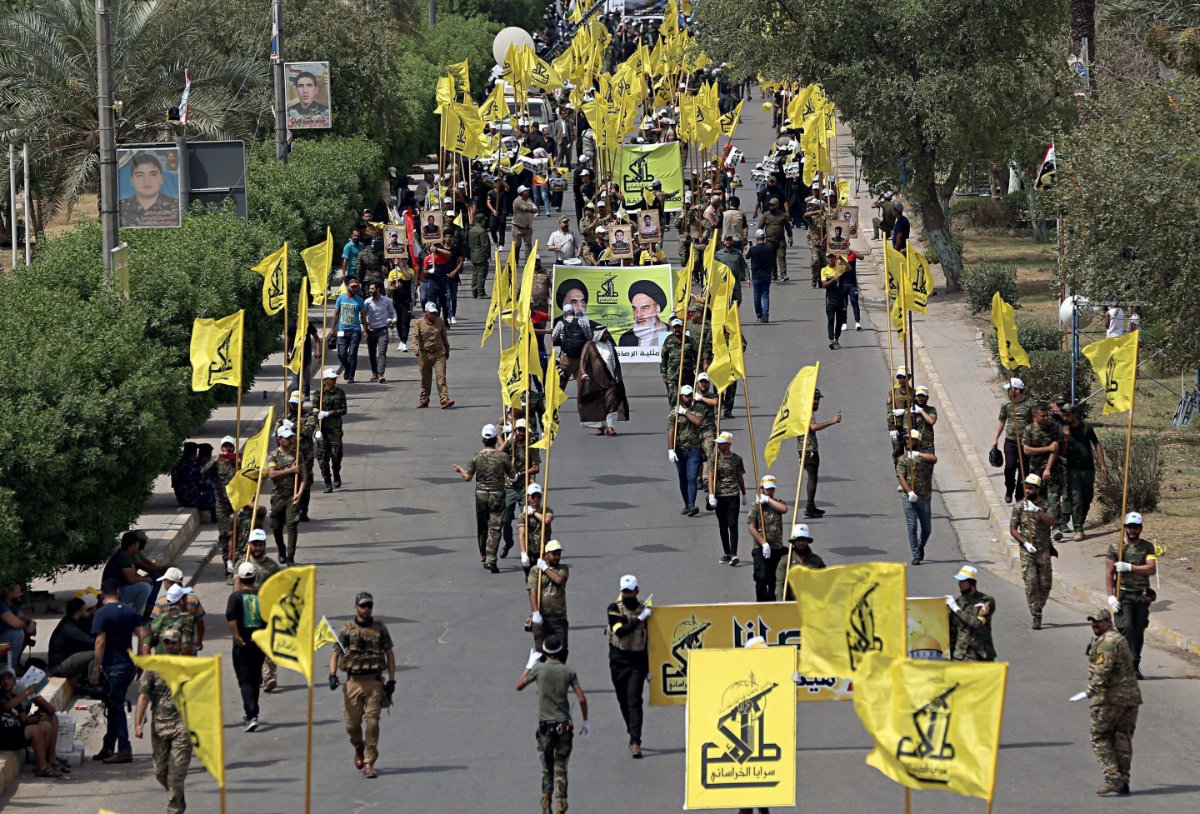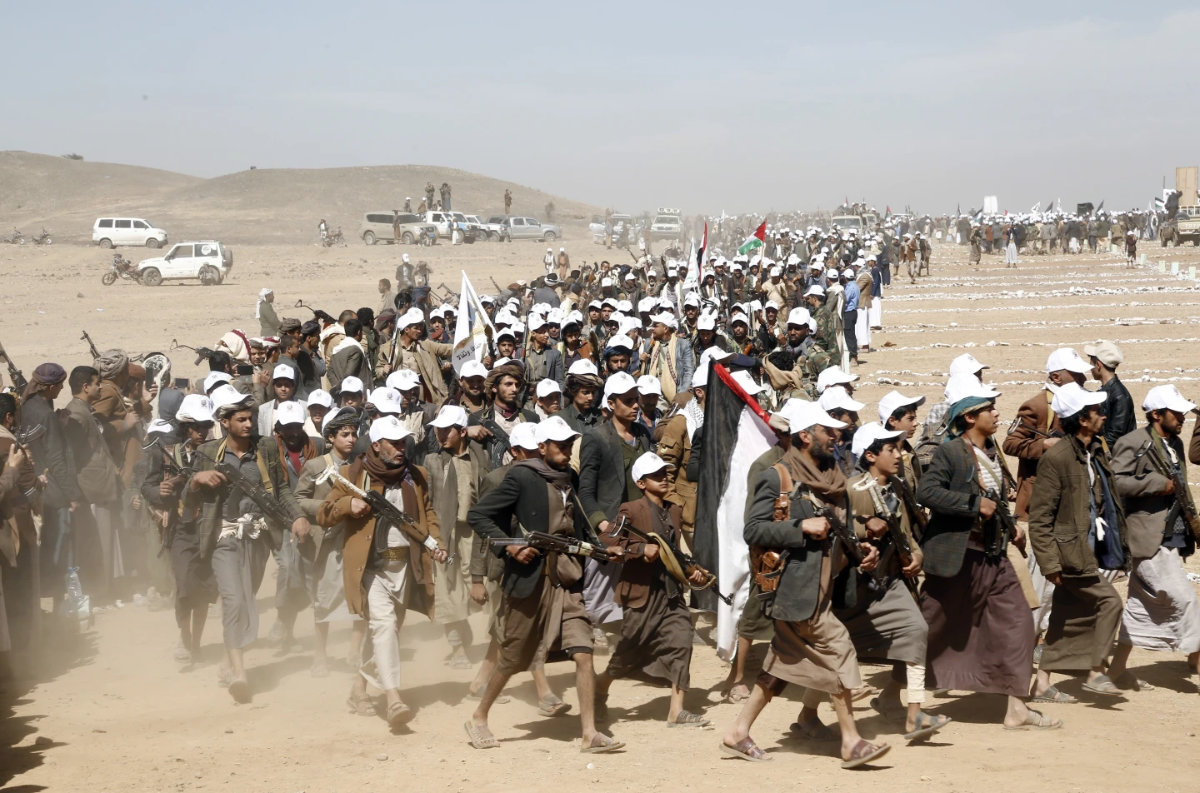Thousands of Iran-backed fighters are offering to join Hezbollah in its fight against Israel
BEIRUT: Thousands of fighters from Iran-backed groups in the Middle East are ready to come to Lebanon to join the militant group Hezbollah in its battle with Israel if the simmering conflict escalates into a full-scale war, officials from Iran-backed factions and analysts say .
There have been almost daily exchanges of fire along Lebanon’s border with northern Israel since militants from the Hamas-controlled Gaza Strip carried out a bloody attack on southern Israel in early October that sparked the Gaza war.
The situation in the north worsened this month after an Israeli airstrike killed a senior Hezbollah military commander in southern Lebanon. In retaliation, Hezbollah fired hundreds of rockets and drones loaded with explosives into northern Israel.
Israeli officials have threatened a military offensive in Lebanon unless a negotiated end is reached to push Hezbollah away from the border.
Over the past decade, Iran-backed fighters from Lebanon, Iraq, Afghanistan and Pakistan have fought together in Syria’s 13-year conflict, helping to tip the scales in favor of Syrian President Bashar Assad. Officials with Iran-backed groups say they could also join forces against Israel again.
Hezbollah leader Hassan Nasrallah said in a speech Wednesday that militant leaders from Iran, Iraq, Syria, Yemen and other countries had previously offered to send tens of thousands of fighters to help Hezbollah, but said the group already had more than 100,000 fighters.
“We told them, thank you, but we are overwhelmed by the number we have,” Nasrallah said.
Nasrallah said the battle in its current form uses only a fraction of Hezbollah’s manpower, an apparent reference to specialized fighters that fire missiles and drones.
But this could change in the event of total war. Nasrallah hinted at this possibility in a 2017 speech in which he said fighters from Iran, Iraq, Yemen, Afghanistan and Pakistan “would be partners” in such a war.
Officials with Iran-backed Lebanese and Iraqi groups say Iran-backed fighters from across the region will join forces if war breaks out on the Lebanese-Israeli border. Thousands of such fighters are already deployed in Syria and can easily slip through the porous and unmarked border.
Some of these groups have already carried out attacks against Israel and its allies since the start of the Israel-Hamas war on October 7. Groups in the so-called “axis of resistance” say they are pursuing a “unity arena strategy” and will only stop fighting when Israel ends its offensive in Gaza against its ally, Hamas.
“We will (fight) side by side with Hezbollah” if all-out war breaks out, one official working with the Iran-backed group in Iraq told The Associated Press in Baghdad, insisting on speaking anonymously to discuss military matters. He declined to provide further details.
The official, along with another Iraqi person, said some Iraqi advisers were already in Lebanon.
An official from a Lebanese-backed group, also insisting on anonymity, said fighters from Iraq’s Popular Mobilization Forces, Afghanistan’s Fatimiyoun, Pakistan’s Zeinabiyoun and an Iran-backed Yemen rebel group known as the Houthis could come to Lebanon to take part in the war .

Iraqi Popular Mobilization Forces march during Al-Quds, or Jerusalem Day, in Baghdad, Iraq, June 8, 2019. (AP/File photo)
Qassim Qassir, an expert on Hezbollah, agreed that the current fighting relies mainly on advanced technologies such as rocket launches and does not require large numbers of fighters. But if a war breaks out and lasts for a long time, Hezbollah may need support from outside Lebanon, he said.
“The clue to this may be (the message) that these are cards that can be used,” he said.
Israel is also aware of a possible influx of foreign fighters.
Eran Etzion, former head of policy planning at the Israeli Ministry of Foreign Affairs, said Thursday during a panel discussion organized by the Washington-based Middle East Institute that he sees a “high probability” of a “multi-front war.”
He said there could be intervention by Houthi and Iraqi militias and “a massive influx of jihadists from (places) including Afghanistan and Pakistan” into Lebanon and Syrian areas bordering Israel.
Daniel Hagari, an Israeli military spokesman, said in a televised statement last week that since Hezbollah began attacking Israel on Oct. 8, it has fired more than 5,000 rockets, anti-tank missiles and drones at Israel.
“Hezbollah’s growing aggression is bringing us to the brink of a broader escalation that could have devastating consequences for Lebanon and the entire region,” Hagari said. “Israel will continue to fight Iran’s axis of evil on all fronts.”
Hezbollah officials have said they do not want all-out war with Israel, but if it happens, they are ready.

Houthi fighters march during a rally in support of Palestinians in the Gaza Strip and against US attacks on Yemen near Sanaa, January 22, 2024. (AP/file photo)
“We have made the decision that any expansion, no matter how limited, will be an expansion that will discourage such a move and cause heavy losses for Israel,” Hezbollah deputy leader Naim Qassem said in a speech last week.
The UN special coordinator for Lebanon, Jeanine Hennis-Plasschaert, and the commander of the UN peacekeeping force deployed along Lebanon’s southern border, Lt. Gen. Aroldo Lázaro, said in a joint statement that “the danger of miscalculation leading to sudden and wider conflict is very real.”
The last large-scale conflict between Israel and Hezbollah occurred in the summer of 2006, when the two countries fought a 34-day war that left approximately 1,200 people dead in Lebanon and 140 in Israel.
More than 400 people have been killed in Lebanon since the latest series of clashes began, most of them fighters, but there were also 70 civilians and non-combatants. On the Israeli side, 16 soldiers and 11 civilians were killed. Tens of thousands have been displaced on both sides of the border.
Analyst Qassir said if foreign fighters joined, it would help them because they had fought together in Syria in the past.
“There is a common military language between the forces of the axis of resistance and this is very important in conducting a common battle,” he said.=

